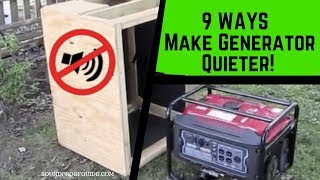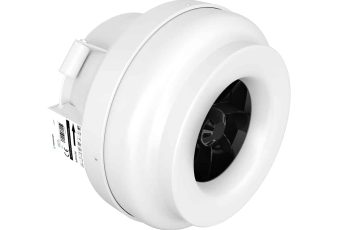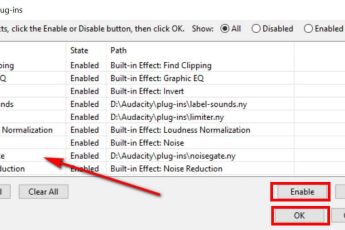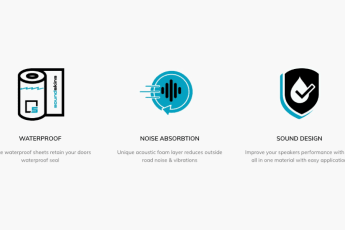If you want to make your generator quieter, there are a few things you can do. These include sound deflectors, insulation, and soundproofing materials. If you’re looking for a more permanent solution, you can invest in a soundproofing machine. This is a great option if you want to keep your generator quiet while still using it.
Sound deflectors
There are many options for making your generator quieter, including sound deflectors. These inexpensive, portable barriers can reduce the noise by a factor of 10 or more. They can be made of plywood, drywall, or other nonflammable material. They should be at least 4 feet wide and three feet high.
Another popular way to make a generator quieter is to install a muffler. Essentially, a large replacement muffler can reduce the noise. These devices feature perforated tubes that absorb sound and reduce the sound coming out of the exhaust pipe.
A sound deflector is an enclosure made of different types of materials, including foam or plywood. These panels are designed to block sound while allowing proper airflow through the generator. Generally, these enclosures are about 50mm thick. The most effective type is made of a wood-plastic composite.
Sound deflectors are very important for quieting generators. A wood sheet placed around the generator at specific angles will also help to reduce the noise and decibel level. Another type is drywall. A good sound deflector will prevent sound waves from reaching nearby surfaces.
A sound deflector can also help reduce noise from the exhaust pipe. A horizontal exhaust pipe will increase noise, while a vertical one will dampen the noise. If you’re unsure about which type of noise deflectors are best, check the manufacturer’s specifications for more information on how these devices work.
Decibel meters and smartphone apps can be used to measure the noise of a generator. Most generators have a decibel level between 70 and 90 decibels. However, some models can produce even higher decibel levels because of mechanical issues.
Insulation
Soundproofing the generator box can significantly reduce the noise level of a generator. There are a variety of soundproofing materials that are ideal for this purpose. For example, you can use 3mm sound insulation membrane from Acoustiblok to combat the noise from industrial-sized generators. Another option is to use tile backer board. Both of these materials are excellent at reducing the noise level of a generator.

Soundproofing materials are easily available at most home improvement stores, major online retailers, and farm supply stores. Home Depot and Walmart carry soundproofing materials, but you can also purchase higher-grade materials from specialty stores. The soundproofing material used is typically fire-resistant. The material used for soundproofing a generator depends on its type and its location.
In addition to using sound deadening material, you can also position the exhaust pipe vertically in order to reduce the noise level. You can also install acoustic fencing around the generator, which helps reflect sound waves and restrict noise from escaping through the enclosure. Insulation inside the generator enclosure is also a great way to minimize noise. You can use acoustic wall panels or other sound-absorbing materials to minimize the noise.
If you don’t want to spend a lot of money on an expensive silencer, you can build one yourself. Plywood is an excellent material for this purpose, since it is inexpensive and allows for customization. While it might require a bit of elbow grease, the finished product is worth it. First, you need to build a wooden box for the generator. Then, you can add ventilation and exhaust holes. You can also paint the inside of the box with tar to minimize sound. To further reduce noise, you can put insulation between the outer box and the inner box.
Another great method for making a generator quieter is installing anti-vibration mounts. These will help reduce the noise from the engine and exhaust pipes. But to get the maximum reduction, you need to use this technique in combination with other methods. Tightening loose screws and rubber washers can also help dampen vibration noise. Moreover, thicker rubber washers will help absorb more noise.
Silencers
Silencers are an integral part of a generator, reducing the noise and emissions produced by the combustion engine. Several different styles of silencers are available to suit specific needs. Reactive silencers have up to three chambers connected by a tube, allowing exhaust noise to bounce between them, reducing the output noise. These silencers are most effective for reducing low to mid-frequency noise, and absorbent silencers have E-glass or fiberglass insulation and are best for high-frequency sound waves.
Silencers can be found in different shapes and sizes. They can be placed over the exhaust tube of the generator to reduce noise. Another type of silencer is an envelope, which is constructed of plywood. It is similar to a box, but can provide more of a noise reduction.
Adding a silencer to your generator will greatly reduce noise levels. There are numerous models on the market, and you can purchase one online. These mufflers can reduce the sound level of a generator by anywhere from 12 to 18 decibels. The enclosure you use should allow the generator to cool, otherwise it could damage the generator.
Choosing a quieter generator is a good idea if the noise from your generator is bothering neighbors. Many of the quieter models are within the same power range as their noisy counterparts, but they often have better mufflers and housings. You can also reduce noise levels by setting your generator further away from an area with nearby homes or buildings. However, this does not make it quieter; instead, it will only lower noise levels.
Soundproofing materials
Generator noise can be reduced by using various soundproofing materials. These include wood panels, mass loaded vinyl, and soundproofing foam. The former provides sound absorption, while the latter prevents sound waves from reverberating in the box. Wood panels should have a lip around them, and the edges should be as large as the thickness of the wood. The top layer of soundproofing materials should be foam, which is effective at blocking sound waves before they reach the box. Acoustic caulk can also be used to seal up small gaps.

Another option for soundproofing materials is fiberboard. While regular plywood is not as effective, fiberboard is an excellent choice. MDF comes in a variety of sizes and can be cut with a table or circular saw. When cutting, be sure to read labels and measurements carefully.
Soundproofing materials make a generator quiet by making it as small as possible. Adding MLV insulation will help reduce noise. Make sure the panels are cut to the correct size, then glue them to the interior side of the soundboards. Then, secure them with screws or hinges. Lastly, make sure that the box is sealed with caulk. This is a simple way to make a generator quieter.
For the walls of the main generator box, you should use medium density fiberboard. You can find this type of material online. You can also use plywood, but make sure to consider the density of the materials used. It is important to keep in mind that plywood can vibrate and generate noise. Plywood is also heavy, so fiberboard is a better choice.
Soundproofing materials make a generator quiet by blocking sound waves that pass through the box. You can also use a baffle box to reduce the overall noise level of a generator. These soundproof materials also prevent sound from entering the box when the machine is running.
Inverter generators
Inverter generators are a great way to make your generator quieter. These units have inverter technology that automatically recognizes electrical demand and adjusts the output. They are also built with body casings and materials that reduce noise. These features make inverter generators perfect for camping.
Inverter generators are also compact and lightweight. This allows them to be easily transported. In contrast, conventional generators are large, bulky and require wheels to move. While inverter generators are convenient, traditional generators are difficult to move around and are not ideal for small spaces.
Another benefit of inverter generators is their cleaner power. Traditional generators emit dirty power that may damage sensitive electronics. These power fluctuations can even cause computer memory loss or operating errors. An inverter generator has a THD (total harmonic distortion) of less than six percent.
Inverter generators are also quieter than traditional generators. You can even pair them up to double their power. Some of the biggest models are about the size of a large bag of dog food. However, before purchasing an inverter generator, consider your power needs. You might need a generator to power a small appliance, such as a television or refrigerator.
Inverter generators also reduce fuel consumption. They run slower when there is no load to draw. In this way, they save up to forty percent on fuel. And because their engines only use fuel when they need to, they produce less noise than traditional generators. As a result, they can even run larger appliances without exhausting too much fuel.

Although some models are quieter than others, it’s still important to choose the right one for your needs. A good brand with an excellent reputation has a wide selection of inverter generators. They can range from a few hundred watts to several thousand watts. It’s important to note that the larger generators produce more noise than smaller models.





